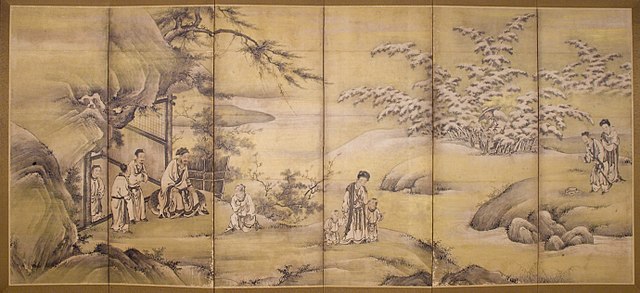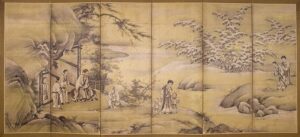Asian American history to be taught in all Illinois public schools
Show caption A surge of anti-Asian violence has led students and teachers to advocate for teaching Asian American history in public schools. Photograph: Jessica Hill/AP Race in education Asian American history to be taught in all Illinois public schools State will be first in US to ensure students learn about Asian Americans’ contributions to the nation’s culture and history Sarah Betancourt @sweetadelinevt Tue 13 Jul 2021 16.03 BST Share on Facebook
Share on Twitter
Share via Email
With the backdrop of anti-Asian violence increasing nationally during the coronavirus pandemic, Illinois has become the first state to require Asian American history be taught as part of the public school curriculum.
Governor JB Pritzker signed the Teaching Equitable Asian American History (Teaach) Act into law on Friday last week, which requires elementary and high schools to teach a unit of Asian American history beginning next year.
“Today, we are reaffirming our commitment to creating more inclusive school environments. We’re making Illinois the first state in the nation to require that Asian American history will be taught in public schools, including a unit about the Asian American experience,” Pritzker said in a press statement.
The teachings will include the contributions of Asian Americans in the arts, humanities and the sciences, as well as their roles in advancing civil rights from the 19th century onward and in political and economic development in the US.
“We are setting a new standard for what it means to truly reckon with our history. It’s a new standard that helps us understand one another, and, ultimately, to move ourselves closer to the nation of our ideals,” said Pritzker.
Representative Jennifer Gong-Gershowitz, who sponsored the bill, is one of only fourAsian Americans in the Illinois house of representatives. “The Teaach Act will ensure the next generation of Asian American students won’t need to travel across the country or attend law school to learn something about their heritage,” she said on Friday during the bill signing.
Gong-Gershowitz’s grandparents immigrated from China in the 1920s, raising five children in Portland, Oregon, who would go on to be doctors, artists and veterans. It wasn’t until law school that she discovered the Chinese were banned from the US under the 1882 Chinese Exclusion Act, which was not repealed until 1943. The ethnic group is the only one in US history ever to be singled out for rejection in immigration law. She knew something didn’t add up.
“My family’s story, or at least what I knew of it until law school, was the fairytale version of the quintessential American immigrant story, one that paints a picture of success, achievement and belonging,” she said to press. “It’s all true, except that it’s not the whole story.”
She said teaching the history of the Exclusion Act, along with the internment of Japanese Americans during the second world war, was essential.
The curriculum legislation was approved in a 108-10 vote in the Illinois house of representatives, with dissenting Republicans arguing that curriculum decisions should be left to local districts. It passed unanimously in the senate, where it was sponsored by the Democratic Ram Villivalam of Chicago, the first Indian and Asian American to serve in the senate.
Stop AAPI Hate, a California-based coalition, recorded more than 6,600 incidents involving hate toward Asian American and Pacific Islanders in the US since 19 March 2020, around the onset of the coronavirus pandemic.
Reported incidents included Asian Americans and Pacific Islanders being coughed at, spat on, avoided and verbally harassed, with 11% of respondents being children.









